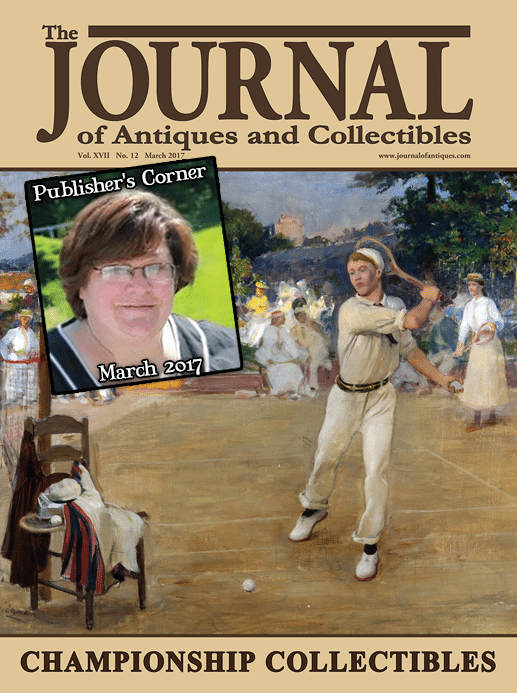-
- Assign a menu in Theme Options > Menus WooCommerce not Found
Ooops! We would love for you to read the newest issue of the Journal of Antiques & Collectibles, but we see that you are not yet a subscriber. We can take care of that for you quickly and easily. Click here to access our subscription page.
If you're already a subscriber, please log in with your username (email) and password here.
Sincerely,
Nick Boschetto

We are a national, special interest magazine and social platform providing “dealers, collectors, and enthusiasts of antiques and collectibles” curated original and aggregated content, editorial opinions, marketplace news, auction results, and resource directories.

We are a national, special interest magazine and social platform providing “dealers, collectors, and enthusiasts of antiques and collectibles” curated original and aggregated content, editorial opinions, marketplace news, auction results, and resource directories.
Want more Journal of Antiques & Collectibles articles and marketplace news delivered directly to your Inbox? Sign up to receive our FREE bi-monthly e-newsletter, Post-Press Update, for information of interest to buyers, showgoers, antiquers, and collectors of antique collectibles. Sign up here:

